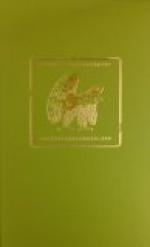Tisdale paused, and again his glance sought the faces of those who had known David Weatherbee. But all the Circle was strung responsive. Those who never had known Weatherbee understood the terrible conditions he had braved; the body-wracking toil underground; the soul-breaking solitude; the crowding silence that months earlier he had felt the necessity to escape. In that picked company, the latent force in each acknowledged the iron courage of the man; but it was Tisdale’s magnetic personality, the unstudied play of expression in his rugged face, the undercurrent of emotion quickening through infinite tones of his voice, that plumbed the depths and in every listener struck the dominant chord. And, too, these men had bridged subconsciously those vast distances between Tisdale’s start from Nome in clear weather, “with a moon in her second quarter,” and that stop at the deserted mine, when his dogs—powerful huskies, part wolf, since they were bred in the Seward Peninsula—“were nearly done for.” Long and inevitable periods of dark there had been; perils of white blizzard, of black frost. They had run familiarly the whole gamut of hardship and danger he himself must have faced single-handed; and while full measure was accorded Weatherbee, the greater tribute passed silently, unsought, to the man who had traveled so far and so fast to rescue him.
“It ought to have been me,” exclaimed Lucky Banks at last in his high treble. “I was just down in the Iditarod country, less than three hundred miles. I ought to have run up once in awhile to see how he was getting along. But I never thought of Dave’s needing help himself, and nobody told me he was around. I’d ought to have kept track of him, though; it was up to me. But go on, Hollis; go on. I bet you made up that day you lost at the mine. My, yes, I bet you broke the record hitting that fifty-mile camp.”
Tisdale nodded, and for an instant the humor played lightly at the corners of his eyes. “It took me just seven hours with an up-grade the last twenty miles. You see, I had Weatherbee to break trail. He rested a night at the camp and lost about three hours more, while they hunted a missing husky to make up his team. Still he pushed out with nearly eighteen hours start and four fresh dogs, with Tyee pulling a strong lead; while I wasn’t able to replace even one of mine that had gone lame. I had to leave him there, and before I reached the summit of Rainy Pass, I was carrying his mate on my sled. But I had a sun then,—the days were lengthening fast into May,—and by cutting my stops short I managed to hold my own to the divide. After that I gained. Finally, one morning, I came to a rough place where his outfit had upset, and I saw his dogs were giving him trouble. There were blood stains all around on the snow. It looked like the pack had broken open, and the huskies had tried to get at the dried salmon. Tyee must have fought them off until Weatherbee was able to master them. At the end of the next day I reached a miners’ cabin where he had spent the night, and the man who had helped him unhitch told me he had had to remind him to feed his dogs. He had seemed all right, only dead tired; but he had gone to bed early and, neglecting to leave a call, had slept fifteen hours. I rested my team five, and late the next morning I came upon his camp-fire burning.”




